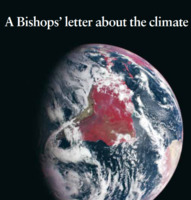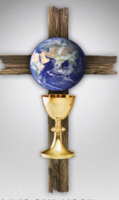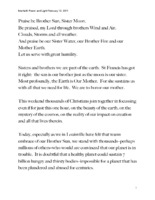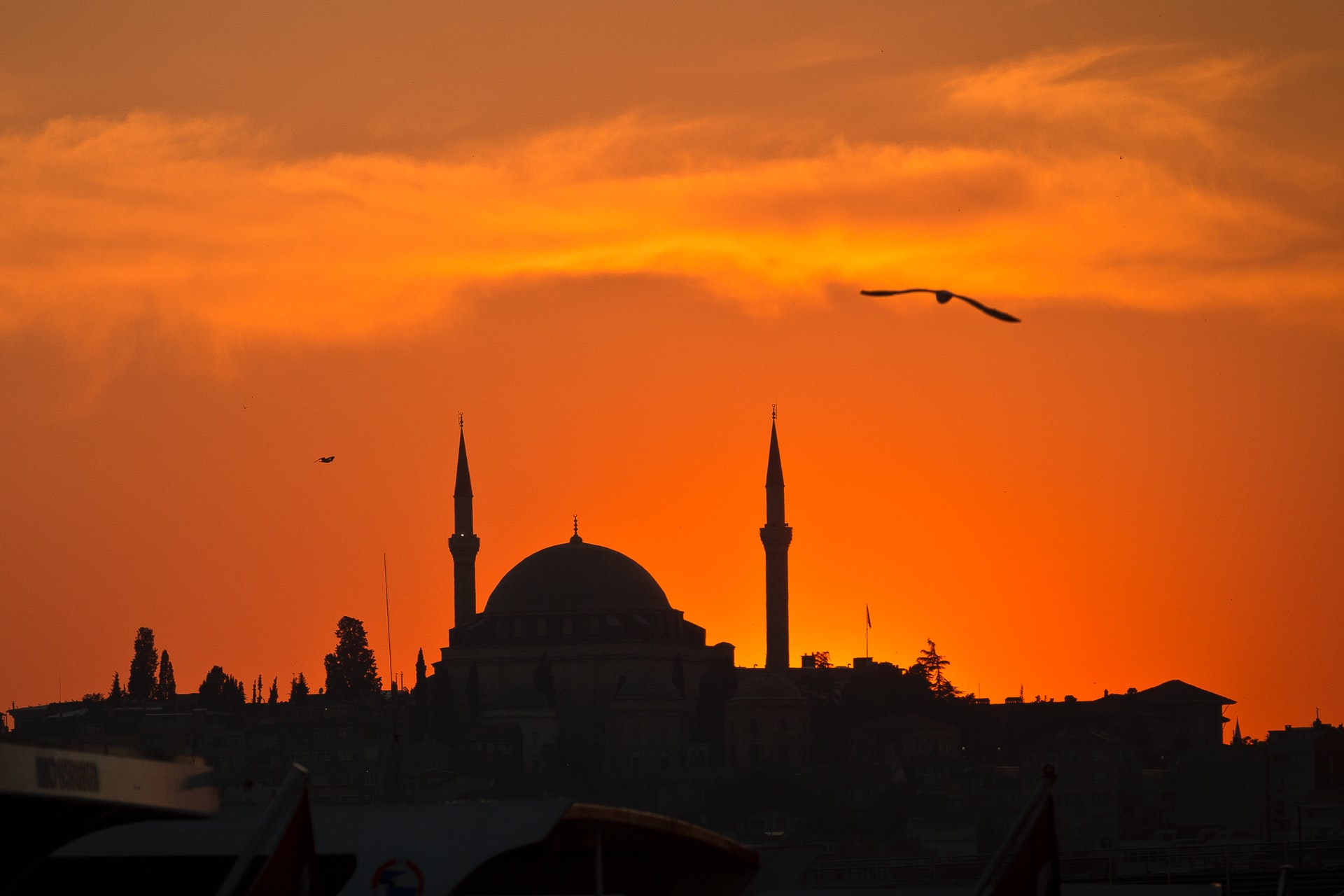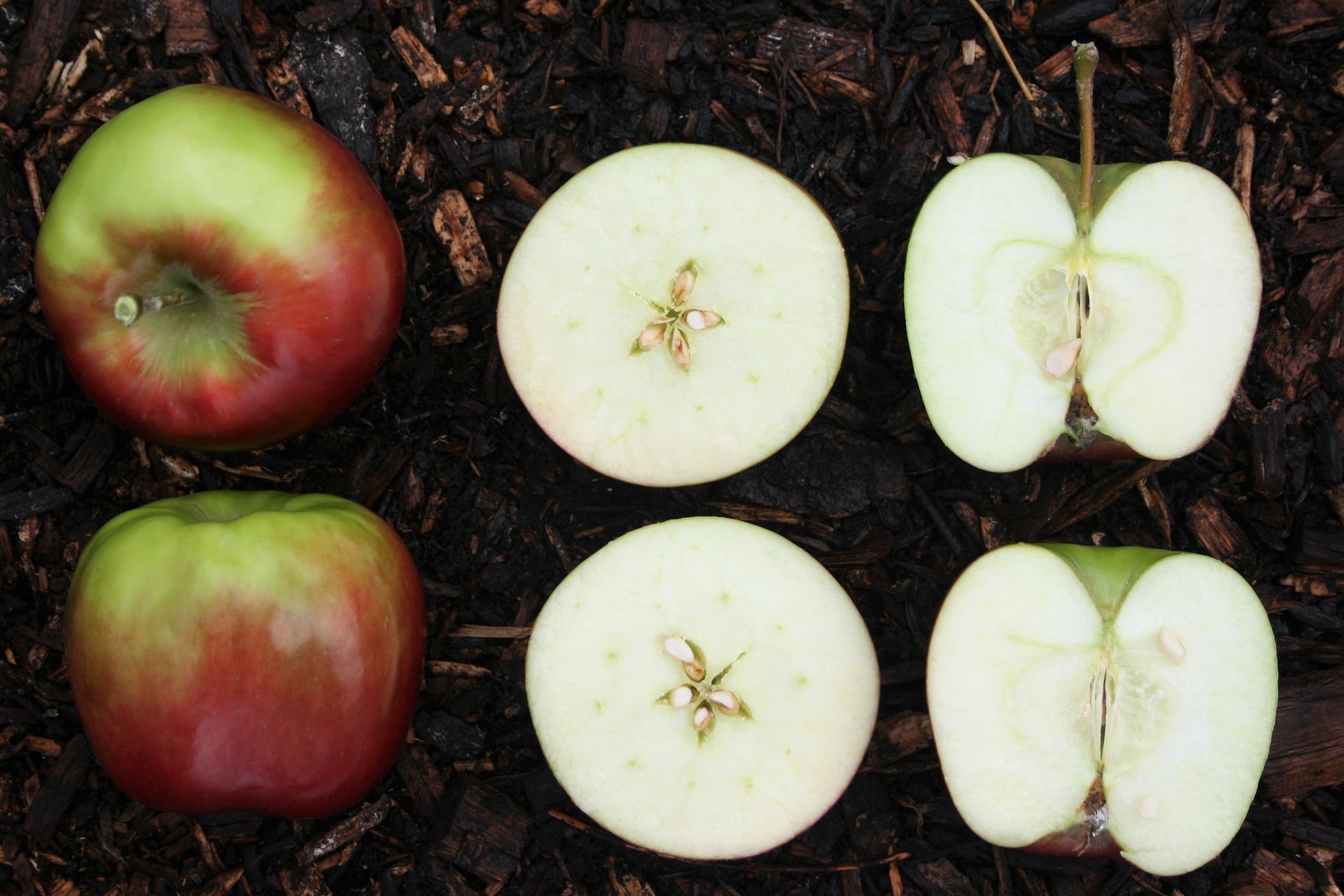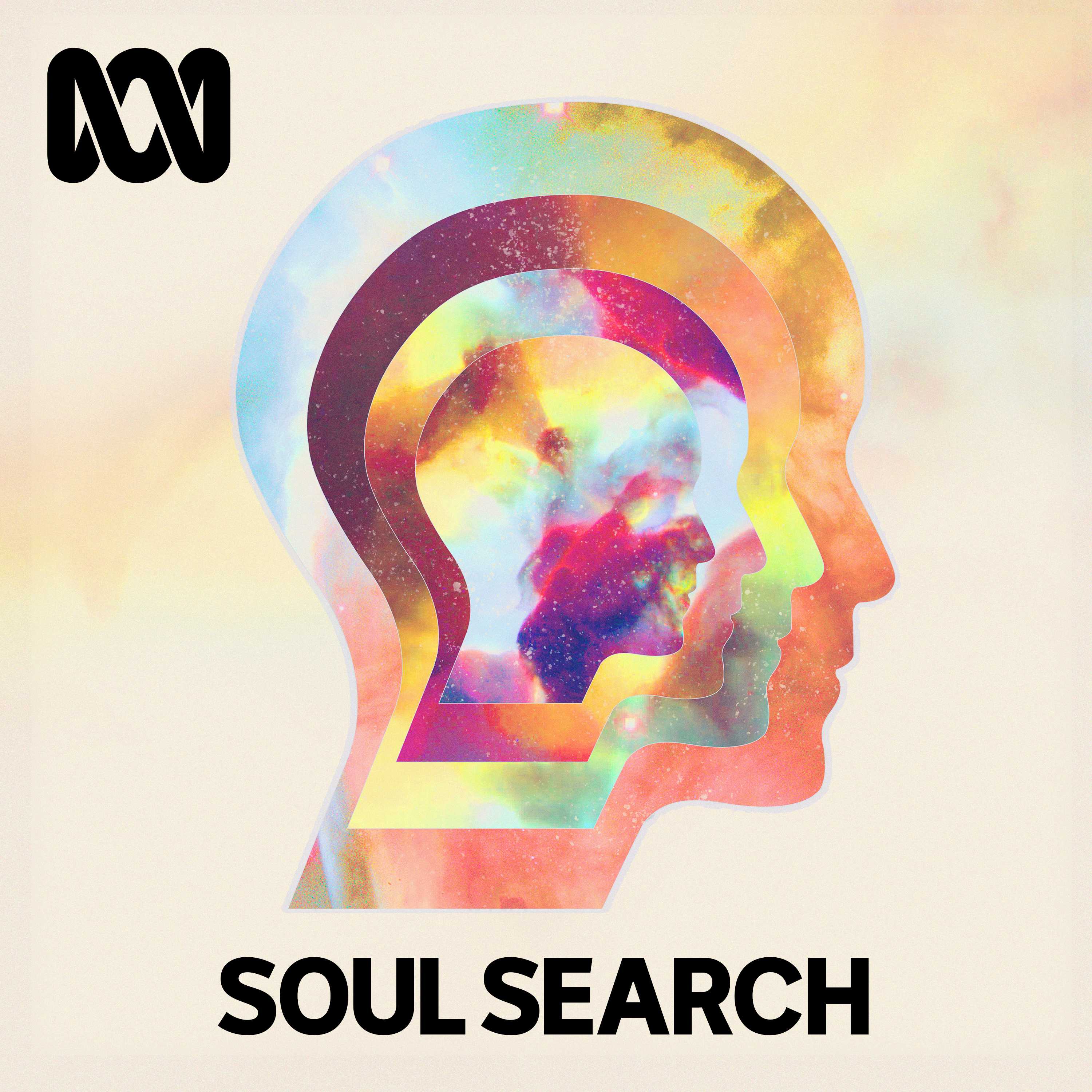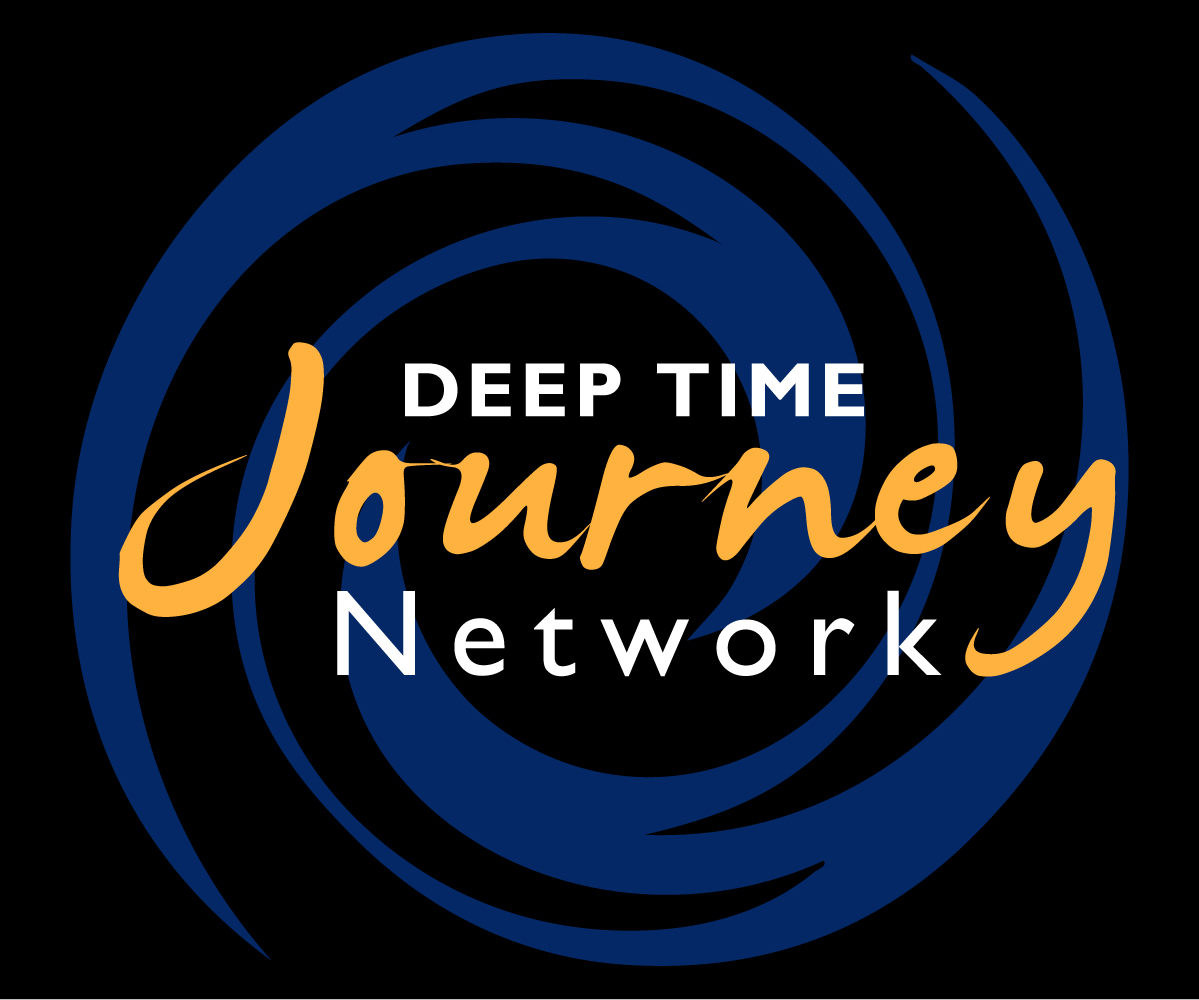Search
168 items
-
A Bishops’ Letter about the Climate
Below is a section of the introduction from A Bishops’ Letter about the Climate, which covers a multitude of critical environmental issues, from the 2014 Bishops' conference:
"We have lived with reports and forecasts of climate change since the 1980s. Our climate is the result of the interaction of complex systems and there is often a great distance between cause and effect in terms of both space and time. There are uncertainties and a lack of clarity. However, the knowledge we possess today does not allow us to postpone until tomorrow
what needs to be done now. Our human climate impact must decrease for the sake of the earth, for the sake of the world that God so loves that God gave us Jesus Christ." -
The world is our host: A call to urgent action for climate justice
Anglican Bishops from around the world discuss various environmental complications resulting from climate change. They provide a list of initiatives of commitment that they have pledged as a church, some of which include strengthening collaboration among partners, developing and distributing educational resources and liturgical materials, and strengthening of ethical investment guidelines. They also list actions that individuals can take to support their mission. -
Episcopalians Confronting Climate Change
This article discusses American Episcopalians' concern over climate change and the impact with regard to those facing poverty. The introduction to the article is stated below:
"In September 2011, the House of Bishops in the Episcopal Church, attending a meeting in Quito, Ecuador, sent a pastoral letter to Episcopal clergy worldwide expressing 'mounting urgency' to address climate change within church membership. The letter argued the critical need for Christians to care for all of God’s creation and urged that justice be sought for the poor, who it said will suffer most from climate change." -
The Hope We Share: A Vision For Copenhagen
The Anglican Communion Environmental Network addressed the United Nations Framework Convention on Climate Change (UNFCCC)
Conference Of Parties (COP) Meetings, the Fifteenth Session, held in Copenhagen, Denmark in December 2009. They lament the consequences of environmental human footprints, some of which include the lack of drinkable water in various parts of the world, the increased difficulty to grow crops due to the water shortages, rampant consumerism, and subsidies for fossil fuels. -
Why Lutherans Care for Creation
This article discusses how various concepts of Lutheran theology are woven into ecological messages with regard to God as creator, human interactions, and ways of worship. The following is a section from the introduction of the article, emphasizing human responsibility towards care for the Earth:
"For Christians, care of the Earth is not an 'environmental cause.' Rather, it is central to our holy calling to treasure the Earth and to care for it as our common home, fully integrating creation-care into our love of God and neighbor. Without sacrificing the transformational effects of the 16th-century Reformation, we are called to embrace an eco-reformation that will re-examine and rethink how we read the Bible, how we can expand the scope of our theology, how we can reconfigure our personal vocation and our common ethic, how we worship, how we organize our church life together, and how we understand ourselves as creatures within creation as a whole. This call to continuing reformation is for the whole church, not solely for the committed. Earth care is not an add-on. It is not just for those who happen to be interested in it. It is a call for all Christians to participate in this great work of our time." -
The Coalition on the Environment and Jewish Life
The Coalition on the Environment and Jewish Life (COEJL) is a group within the Jewish Council of Public Affairs that focuses on environmental issues within the Jewish community. Their focus is on utilizing Jewish environmental knowledge to serve as a voice within in the broader interfaith community, through outreach and activism. Working among a network of Jewish leaders, institutions and individuals, COEJL seeks to conserve energy, increase sustainability, and advocate for policies that increase both energy efficiency and security. -
Existentialism an the Ecological Crisis
This segment of The Philosopher's Zone with David Routledge (on the Australian Broadcasting Corporation) focuses on the importance of existentialism in modern times. Specifically, how existentialism can help us understand current relationships between the self and others, as well as with nature. Likewise, the podcast’s contributor, Dr Dalia Nassar points out that existentialism implies a sort humanism (as Sartre argued) that connects each individual to all of humanity through their actions. It is the fact that each of our actions can affect one another is why the existentialists place so much emphasis on how we act. Furthermore, the podcast extends this to the ecological crisis by explaining how this radical humanism can inform how we make environmental decisions. The important point here is that we can derive environmental values based on the inherent freedom that humans have, there is a constant need for action. As the interviewer explains in the podcast, the individual determines the moral future of humanity and nature. Thus, each person has a moral obligation to transcend the current situation and make better choices for the environment. Likewise, there is a special attention to art and literature as a mode of connection, to hopefully shape others moral and environmental values. Therefore, existentialism provides a framework (much like religion) for guiding our actions based on a mutual care for the environment. Finally, I should note that the key points of the podcast (concerning the environment) starts at the 18-minute mark, while the latter half provides background knowledge on existentialism. -
Ancient Judean Dates
A date tree planted in Ketura, Israel from 2000 year old seeds found at an archeological site in the Judean wilderness has finally bore fruit earlier this month (September 2020). The harvest was hailed a modern miracle of science. “In these troubled times of climate change, pollution and species dying out at alarming rates, to bring something back to life from dormancy is so symbolic,”... Date palms were praised in the Bible and the Quran, and became symbols of beauty, precious shade and succulent plenty. -
Seeing true nature: Buddhism and the environment
John Worthington-Hill describes how Buddhism can encourage environmental awareness and sustainability. Embracing individuality is our disconnection from the natural world. In order to live in unity with the earth, we must find the 'middle way' (a buddhist morality based on self-discipline). "Self-centeredness is the great illness from which all imbalance, insensitivity and abuse ultimately stem – an illness directly linked to the Buddha’s ‘three poisons of greed, ill-will and delusion’. These poisonous mentalities seep into the collective consciousness and are instilled in the norms and structures of culture and society, helping to direct how politics and economics deal with the environment." "Environmental destruction is therefore an outer manifestation of an inner affliction. If our thoughts are polluted, then our actions will be polluted too, and so will their consequences." -
Five Years After Speaking Out on Climate Change, Pope Francis Sounds an Urgent Alarm
This article covers Pope Francis's reaction to the world governments responses to climate change. The Pope writes to unite people through religion in an effort to bring awareness to the movement. The article details how the church is divesting in fossil fuel companies. The article also focuses on the political divide and how it affects people's views on the climate crisis. -
Himalayan Institute
Founded in 1969 by the great teacher and humanitarian, Swami Rama, the Himalayan Institute acts on the basis of yoga tradition and Eastern spirituality. Through the living connection to an ancient wisdom tradition of the Himalayan Masters, and the guidance of spiritual head Pandit Rajmani Tigunait, the Himalayan Institute seeks to serve communities across the globe of those who seek to live their spiritual values. The institute provides resources for anyone seeking spiritual wellness such as yoga and meditation training, local retreats and seminars, and domestic and international excursions, frequently taking the form of a trek through the Himalayas. The Himalayan Institute strives for sustainable living in partnership with the community in Honesdale and also in their projects in India and Africa- providing sustainable living, jobs, and farming in several different communities. -
The “Green Team”, Community Synagogue of Rye
The “Green Team” at the Community Synagogue of Rye in Westchester, New York works to create projects that focus on sustainability within their congregation, and in the surrounding community. Through renewable energy initiatives, community supported agriculture, youth involvement, group nature hikes, and other related projects, the Green Team approaches environmental stewardship through the lens of Jewish teachings and scripture. They work closely with the Westchester Jewish Greening Group, a related religious environmental organization, in efforts to bring more sustainable, “greener” practices to the Westchester County community. Through these activities and initiatives, the Green Team works to live out the value of Tikkun Olam - ‘repairing the world’. -
The Wisdom of Houseplants
There has been a recent rise in the popularity of houseplants. This resource relates aspects of tending to houseplants to different ways you can be more mindful about your own life. Through caring for the houseplants, this web page reminds you to be adaptable, to be patient, and to expand yourself. While also additionally reminding the reader that letting go and paying attention to your physical health are both key in positive personal growth. -
Dalai Lama's 10 Rules for Success
This video is the Dalai Lama speaking of how to calm ones mind as well as how to connect with the universe through inter connection of self and creation. -
Brother Sun, Sister Moon
Pastor Michael Mernagh delivered this sermon that relates the planets and elements to family members. He does this to encourage his audience to treat the environment as family. Father Michael passionately describes how humans have been harming the environment and advocates for his audience to change their attitude in order to make better choices. -
Federation of Zoroastrian Associations of North America (FEZANA)
FEZANA is a non-profit religious group registered in the state of Illinois and formed to function as the coordinating organization for Zoroastrian Associations of North America. It serves as the coordinating body for 27 Zoroastrian Associations in the United States and Canada.
On this website, you can learn more about the community of FEZANA , Zoroastrianism, their sustainability reports and other social activities.
-
Green Muslims Ramadan Toolkit
Ramadan is a time to reflect, exercise self-control, and cultivate connections to one's faith. This three-part toolkit hopes to enhance the Ramadan experience using those same concepts but building more environmentally friendly habits while connecting one
with their faith in a unique way.
Each day highlights an Ayah, a quote, or a hadith that aspires to inspire you to action. The “challenge yourself” section of the day gives you a suggestion on how to adjust your habits, and the “reflection” section hopes to help you analyze your current habits in order to make the habit-forming both action-oriented and intellectual. -
Green Umbrella Impact Team: Faith Communities Go Green
MISSION: Partnering with religious communities to create a more sustainable and equitable future for all by mobilizing their moral voice to reduce the risk of catastrophic climate change.
VISION: Religious communities collaborating to integrate care for creation in their lives and society. -
Ecological Consciousness in Jainism: Exploring Realities, Constraints, and Traditions
This paper explores the traditions and philosophies of Jainism and how that influences its connection to the environment. The author explains the Jainism cosmology and the distinction between different senses as they apply to animate and inanimate beings. Jain literature understands human connections to the world with an emphasis on the interconnectedness of life forms. To Jains, environmental concerns cannot be separated from socio-economic concerns. -
The 12 Principles of Permaculture: A Way Forward
This blog article describes the basics of permaculture (permanent culture). Permaculture is rooted in the observation of natural systems and indigenous knowledge. The author introduces the solution permaculture offers to help us transition to a more resilient, ethical, and sustainable future better for the planet and its inhabitants. -
Wendell Berry and Ellen Davis: The Art of Being Creatures (Episode from On Being)
In this intimate conversation between Krista and one of her beloved teachers, we ponder the world and our place in it, through sacred text, with fresh eyes. We’re accompanied by the meditative and prophetic poetry of Wendell Berry, read for us from his home in Kentucky: “Stay away from anything / that obscures the place it is in. / There are no unsacred places; / there are only sacred places / and desecrated places. / Accept what comes of silence.” -
On Being with Krista Tippett
The On Being Project is a nonprofit media and public life initiative. We make a public radio show, podcasts, and tools for the art of living. Six grounding virtues guide everything we do. We explore the intersection of spiritual inquiry, science, social healing, community, poetry, and the arts. We’re offering ongoing special content for this moment, including conversations about race and healing, “care packages” for care givers and uncertain times, and a new way to experience poetry.
A Peabody Award-winning public radio show and podcast. What does it mean to be human? How do we want to live? And who will we be to each other? Each week a new discovery about the immensity of our lives. Hosted by Krista Tippett. -
Soul Search with Dr. Meredith Lake
Soul Search explores contemporary religion and spirituality from the inside out — what we believe, how we express it, and the difference it makes in our lives.
Airs Sunday 6 pm Repeated: Wednesday 11 pm, Thursday 12pm.
You can listen to this podcast on platforms such as Apple Podcasts, Google Podcasts, and ABC Listen App. -
Green Shinto
Green Shinto is a blog by John Dougill operating out of Kyoto, Japan, which is dedicated to the promotion of an open, international and environmental Shinto. It seeks to celebrate the rich heritage of the tradition, from sacred rocks and shamanistic roots to bawdy myths and fertility festivals. It believes Shinto to be essentially diverse, localised, and community-oriented. It looks to a Shinto free of borders, liberated from its past to meet the demands of a new age. It looks in short to a Shinto that is green indeed as well as in word. -
Deeptime Journey Network
DTN’s mission is to orient humanity to an evolving interconnected universe as expressed in our vision. We bring together science, ancient wisdom and the arts inside community to share learning, global conversation, celebration, and action. The significance and profound power of a deeptime perspective — when shared in community — inspires, guides and motivates us to create a flourishing future.
DTN is a project of The Deep Time Journey Network, a 501(c)(3) non-profit in Princeton New Jersey, founded to build a global community, offer courses, and share resources. It’s a vision of community in which everyone is source and where connecting and collaborating mirrors the way the universe itself evolves through new partnerships.

